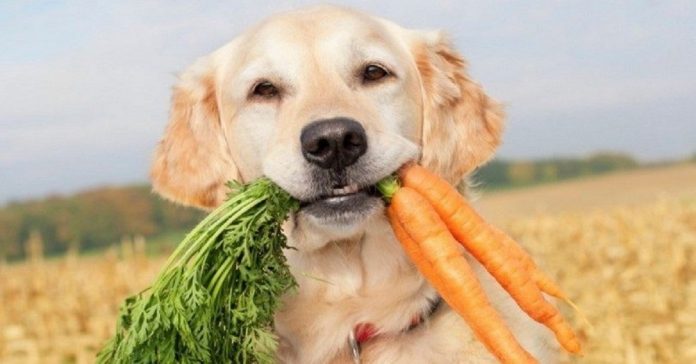Which Dog Food is the best for your beloved? Dog owners know best how much this question can be caused by doubts and headaches, in relation to different opinions, racing commercial brands, and the advice of different veterinarians.
Here are some tips to help you choose the right food:
– QUANTITY
Regardless of the type of food you choose, the most important thing, experts say, is not to feed your dog too much, that is – not to overdo the size of portions and the frequency of feeding.
This problem is indicated by the growing number of obese dogs worldwide, but also in our country.
Obesity leads to serious health problems, such as diabetes, arthritis, respiratory and cardiovascular problems, etc.
-“HEALTHY” WORDS
As with human food, you can find words on the packaging of many popular dog food brands that do not have a clearly defined and precise meaning.
The words “natural” or “healthy” often have a very broad meaning, and should not be used when making a decision.
– ORGANIC FOOD
Organic food can be a good choice, but there is still not enough data to testify to the long-term benefits for pet health when choosing organic, compared to other commercial types of food that contain an appropriate, balanced ratio of nutrients for the dog.
– HIDDEN INFORMATION
Labels usually do not contain everything that dog owners should know.
In addition to the listed ingredients, nutrient ratios, and food content, you should also know something about the content of by-products, as well as the potential allergens present.
Do not hesitate, ask the vet, or call the call center to get all the necessary information.
– RAW MEAT
Experts are unanimous in the opinion that a dog should never be fed raw meat since there is a great danger of contamination with bacteria that can cause serious health problems in dogs.
– WHOLE GRAINS
A diet based on whole grains is generally considered healthy, but an increasing number of dogs show gluten intolerance, and this diet can develop different types of allergic reactions.
An increasing number of dogs, in addition to reactions to gluten, react negatively to the presence of soy, corn, and wheat in their food.
– PROTEINS
As you read the label on the product, pay special attention to the presence of protein in the food (protein is most important for the proper growth and development of the pet), see if it contains all the nutrients recommended for dog nutrition, and check if the product is tested and approved. in relation to standards that are clearly prescribed.
– INDIVIDUALIZATION
When asked if the food you choose is nutritionally complete, you will not be able to answer until you know the needs and characteristics of your dog.
Each dog is an individual for itself, and the determination of his needs will depend on his breed, daily activities, age, and health condition.
Therefore, when making a decision about the choice of food, portion size, and frequency of feeding, it is necessary to consult a veterinarian who knows your pet best.





